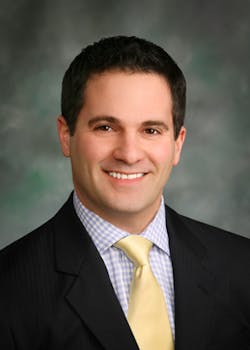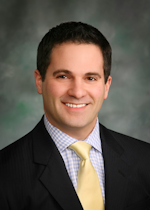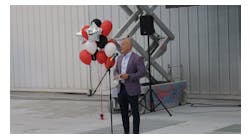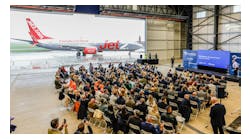On March 17, the Federal Aviation Administration (FAA) issued an Advanced Notice of Proposed Rulemaking (ANPRM) to collect information to draft regulations regarding controlled substance and alcohol testing of part 145 repair station employees located outside the United States.
This development was initially reported by the Aeronautical Repair Station Association (ARSA) when the FAA announced that it would seek comments to the ANPRM on March 13.
The FAA rulemaking is not a surprise; in fact, it is the direct result of a carefully crafted legislative compromise in the FAA Modernization and Reform Act (P.L. 112-95; enacted, Feb. 14, 2012). Specifically, the law mandates in Sec. 301:
- IN GENERAL.—The Secretary of State and the Secretary of Transportation, acting jointly, shall request the governments of foreign countries that are members of the International Civil Aviation Organization to establish international standards for alcohol and controlled substances testing of persons that perform safety-sensitive maintenance functions on commercial air carrier aircraft.
- APPLICATION TO PART 121 AIRCRAFT WORK.—Not later than 1 year after the date of enactment of this section, the Administrator shall promulgate a proposed rule requiring that all part 145 repair station employees responsible for safety sensitive maintenance functions on part 121 air carrier aircraft are subject to an alcohol and controlled substances testing program determined acceptable by the Administrator and consistent with the applicable laws of the country in which the repair station is located. (emphasis added)
ARSA steadfastly believes mandating drug and alcohol testing of maintenance providers is unnecessary and burdensome with no flight safety benefit. Unfortunately, for many years, labor unions, opposed to contract maintenance, successfully lobbied the FAA and Congress to mandate onerous requirements on repair stations, including drug and alcohol testing.
Efforts to impose drug and alcohol testing on foreign maintenance providers date back to 2007, when then-House Transportation & Infrastructure Committee Chairman Jim Oberstar (D-Min.) included a broader version of the provision in his House-passed FAA reauthorization bills (H.R. 2881; H.R. 915), which as written would have required specimens be sent back to the United States for testing. Industry and foreign civil aviation authorities (CAAs), such as the European Aviation Safety Agency (EASA), fought these efforts, amid the threat of the European Union-United States Bilateral Aviation Safety Agreement (BASA) collapsing. With many proponents adamant that requiring drug and alcohol testing in sovereign countries (despite strict laws prohibiting it) and several other key issues taking precedence, the FAA reauthorization bills were not enactment.
In 2011, when Senate Commerce, Science & Transportation Committee Chairman John D. Rockefeller (D-West Va.) and House Transportation & Infrastructure Committee Chairman John Mica drafted their chambers respective FAA reauthorization bills, the lawmakers included a carefully crafted compromise mandating a proposal for alcohol and controlled substance testing of safety-sensitive employees working on part 121 air carrier aircraft consistent with the applicable laws of the country in which the repair station is located. On February 14, 2012, the compromise became law and now the FAA is implementing congressionally mandated provisions.
Several years later, the FAA is attempting to get its arms around the drug and alcohol testing laws in other countries and how to comply with the ill-conceived congressional mandate. In particular, the agency is seeking answers to the following questions:
- Which drugs are most misused in a particular country? If testing programs exist, are they administered by a national regulatory authority? Are industry participants required to establish such programs under the country’s laws and regulations, or does industry do that voluntarily?
- Should the program require testing for the same drugs the FAA requires tests for in the United States? At what concentrations should alcohol and drug tests be considered “positive?
- Does a particular country allow or require random drug and/or alcohol testing? If so, what is the process?
- If a country does not allow or require random drug and/or alcohol testing, are there laws that prohibit random testing? What other methods might successfully deter employees from misusing drugs or alcohol while performing safety-sensitive duties, or within a certain period of time before performing such duties? How would such misuse be detected?
- What are the standards that employees who have violated drug and alcohol regulations should meet before they are allowed to return to performing safety-sensitive maintenance work?
With comments due on May 16, overseas aviation companies should submit comments to the docket. Additionally, the foreign governments are strongly advised to provide detailed answers to the aforementioned questions.
The ANPRM should serve as a reminder that excessive regulation begins on Capitol Hill; by the time the aviation maintenance industry mobilized, the best that could be done was to moderate the drug and alcohol testing language. With your help, next time we’ll be prepared to stop Congress’ bad ideas while it’s still a concept, not when it’s already in legislation.




